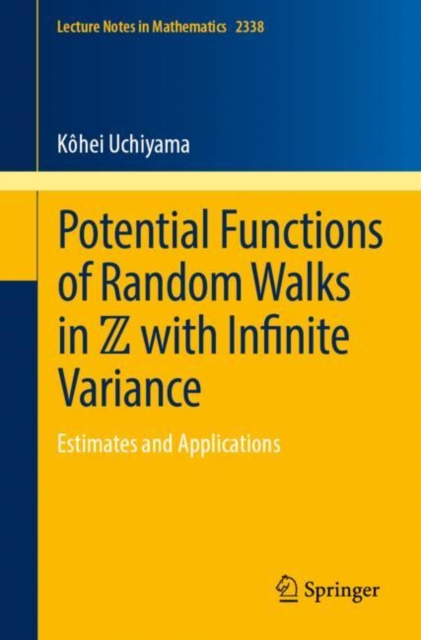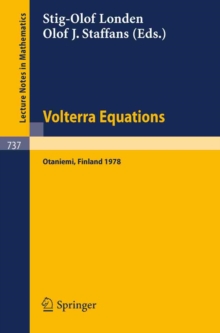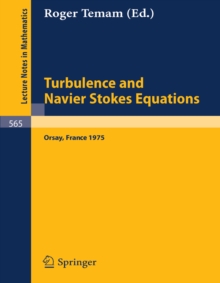
Potential Functions of Random Walks in Z with Infinite Variance : Estimates and Applications Paperback / softback
by Kohei Uchiyama
Part of the Lecture Notes in Mathematics series
Paperback / softback
Description
This book studies the potential functions of one-dimensional recurrent random walks on the lattice of integers with step distribution of infinite variance.
The central focus is on obtaining reasonably nice estimates of the potential function.
These estimates are then applied to various situations, yielding precise asymptotic results on, among other things, hitting probabilities of finite sets, overshoot distributions, Green functions on long finite intervals and the half-line, and absorption probabilities of two-sided exit problems. The potential function of a random walk is a central object in fluctuation theory. If the variance of the step distribution is finite, the potential function has a simple asymptotic form, which enables the theory of recurrent random walks to be described in a unified way with rather explicit formulae.
On the other hand, if the variance is infinite, the potential function behaves in a wide range of ways depending on the step distribution, which the asymptotic behaviour of many functionals of the random walk closely reflects. In the case when the step distribution is attracted to a strictly stable law, aspects of the random walk have been intensively studied and remarkable results have been established by many authors.
However, these results generally do not involve the potential function, and important questions still need to be answered.
In the case where the random walk is relatively stable, or if one tail of the step distribution is negligible in comparison to the other on average, there has been much less work.
Some of these unsettled problems have scarcely been addressed in the last half-century.
As revealed in this treatise, the potential function often turns out to play a significant role in their resolution. Aimed at advanced graduate students specialising in probability theory, this book will also be of interest to researchers and engineers working with random walks and stochastic systems.
Information
-
Out of stock
- Format:Paperback / softback
- Pages:276 pages, IX, 276 p.
- Publisher:Springer International Publishing AG
- Publication Date:29/09/2023
- Category:
- ISBN:9783031410192
Other Formats
- PDF from £46.74
Information
-
Out of stock
- Format:Paperback / softback
- Pages:276 pages, IX, 276 p.
- Publisher:Springer International Publishing AG
- Publication Date:29/09/2023
- Category:
- ISBN:9783031410192










